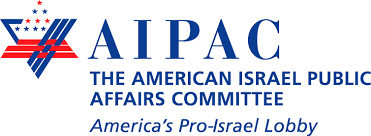Beyond AIPAC: Israel as U.S. election issue
At the recent American Israel Public Affairs Committee (AIPAC) conference, each of the remaining United States presidential candidates—except for Democratic contender Sen. Bernie Sanders (I-Vt.), who did not appear—essentially claimed themselves to be the most pro-Israel candidate.
Democrat Hillary Clinton told the crowd that she has the “steady hands” Israel needs and that Israel’s security “is non-negotiable.” Republican Gov. John Kasich of Ohio called his support for Israel “firm and unwavering for more than 35 years of my professional life.” GOP Sen. Ted Cruz of Texas said he would “stand unapologetically with the nation of Israel” and would “not be neutral” on the issue, a swipe at his Republican opponent businessman Donald Trump, who has in the past said he would be a “neutral” peace broker in the Israeli-Palestinian conflict. At the AIPAC conference, Trump promoted himself as a “lifelong supporter and true friend of Israel,” repeatedly urging the audience to “believe me.”
Yet the AIPAC speeches were just that—speeches. What candidates espouse on the campaign trail is almost never a fully accurate foreshadowing of what their policies will be once they’re in office. When it comes to Israel, which has long been touted by the AIPAC lobby and other pro-Israel groups as a bipartisan issue, there have been some shifts in policy of late, says Amnon Cavari, a lecturer at the Lauder School of Government, Diplomacy and Strategy at the Interdisciplinary Center in Herzliya, Israel.
Cavari says there is a documented growing gap between Republican and Democratic support of Israel. He notes that a poll he recently conducted found that when Republicans were asked whether their sympathies lie more with Israelis or Palestinians, more than 80 percent sided with Israel. In contrast, only around 55 percent of Democrats said the same.

 44.0°,
Mostly Cloudy
44.0°,
Mostly Cloudy 




